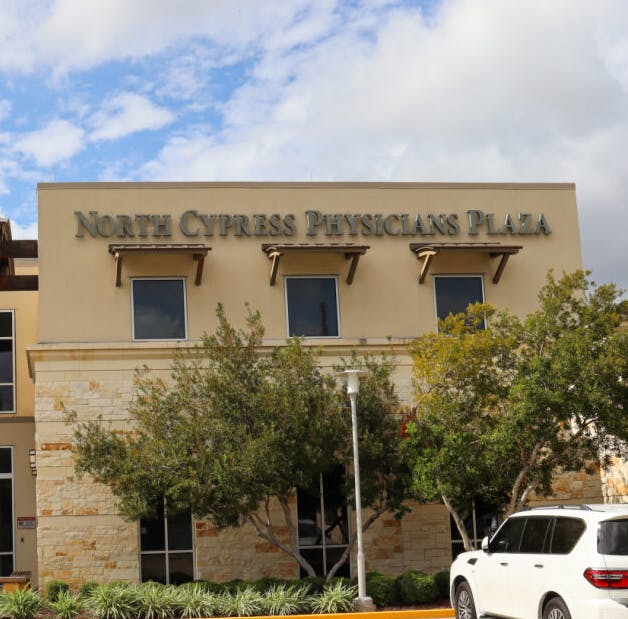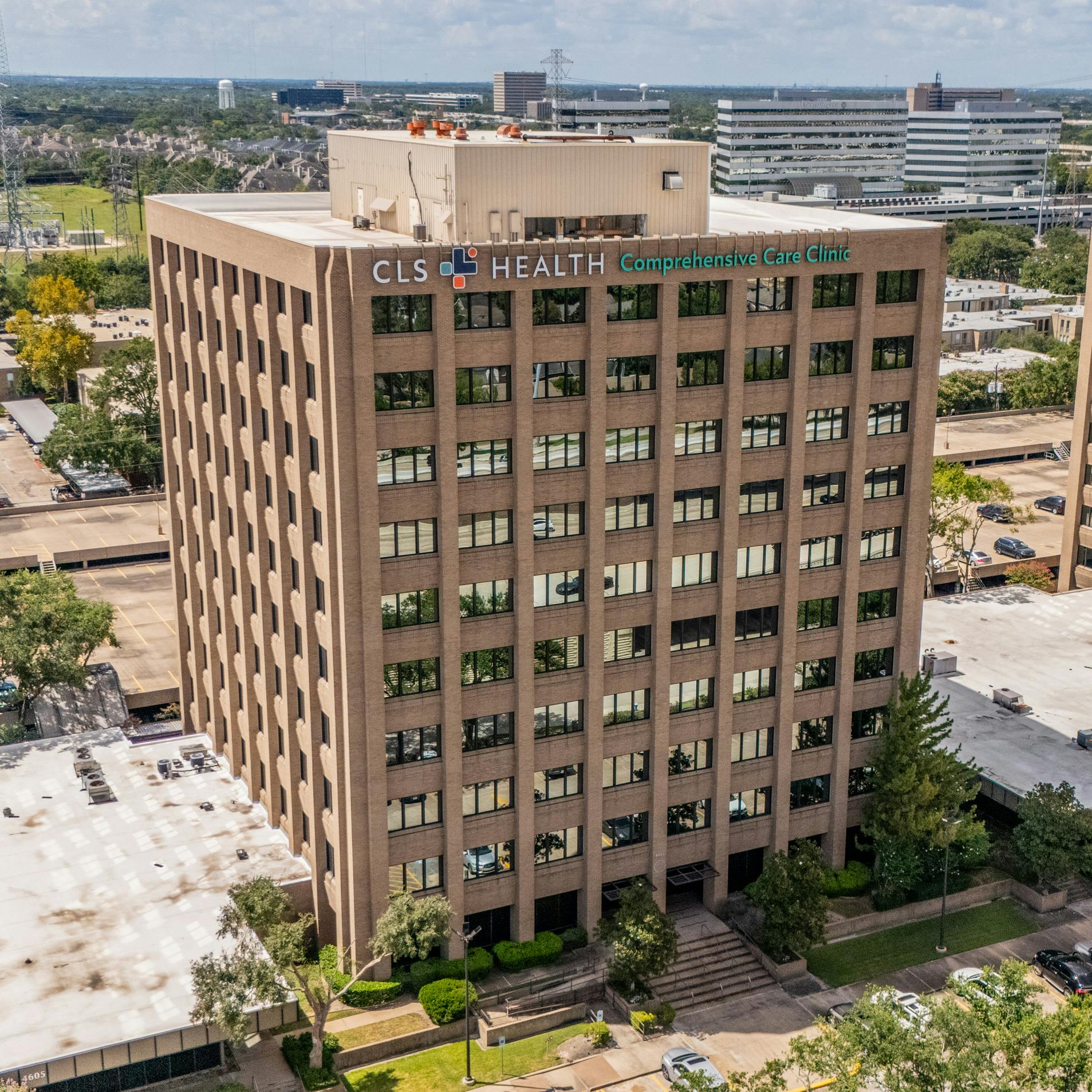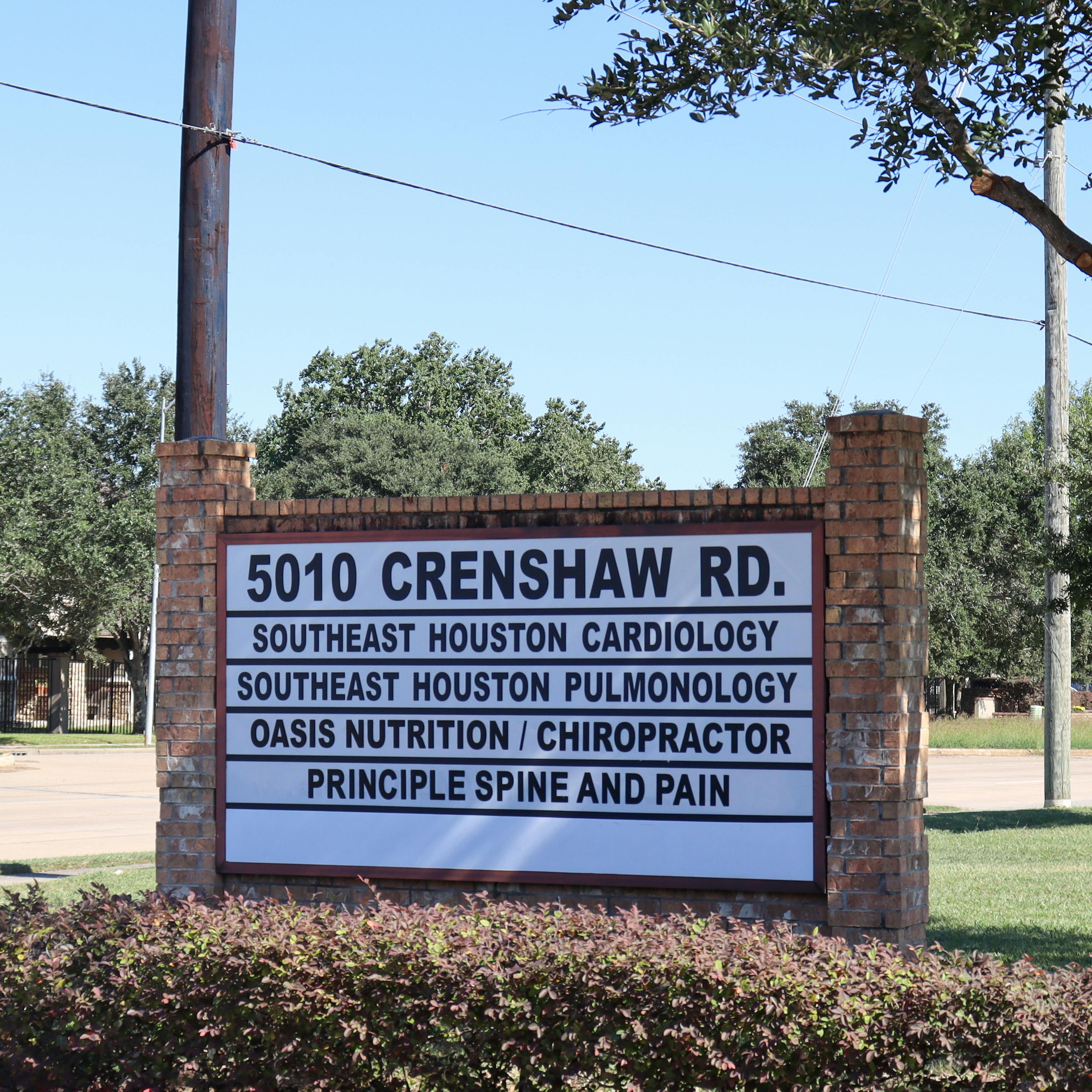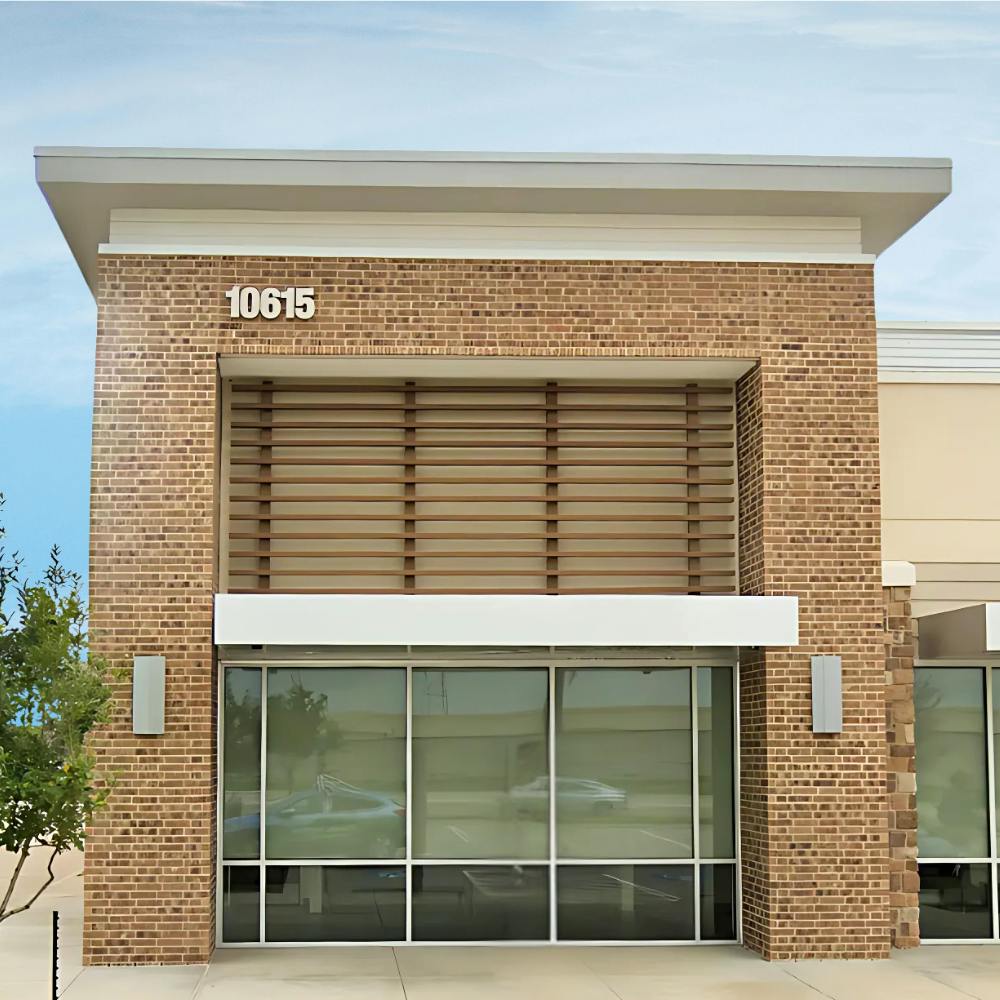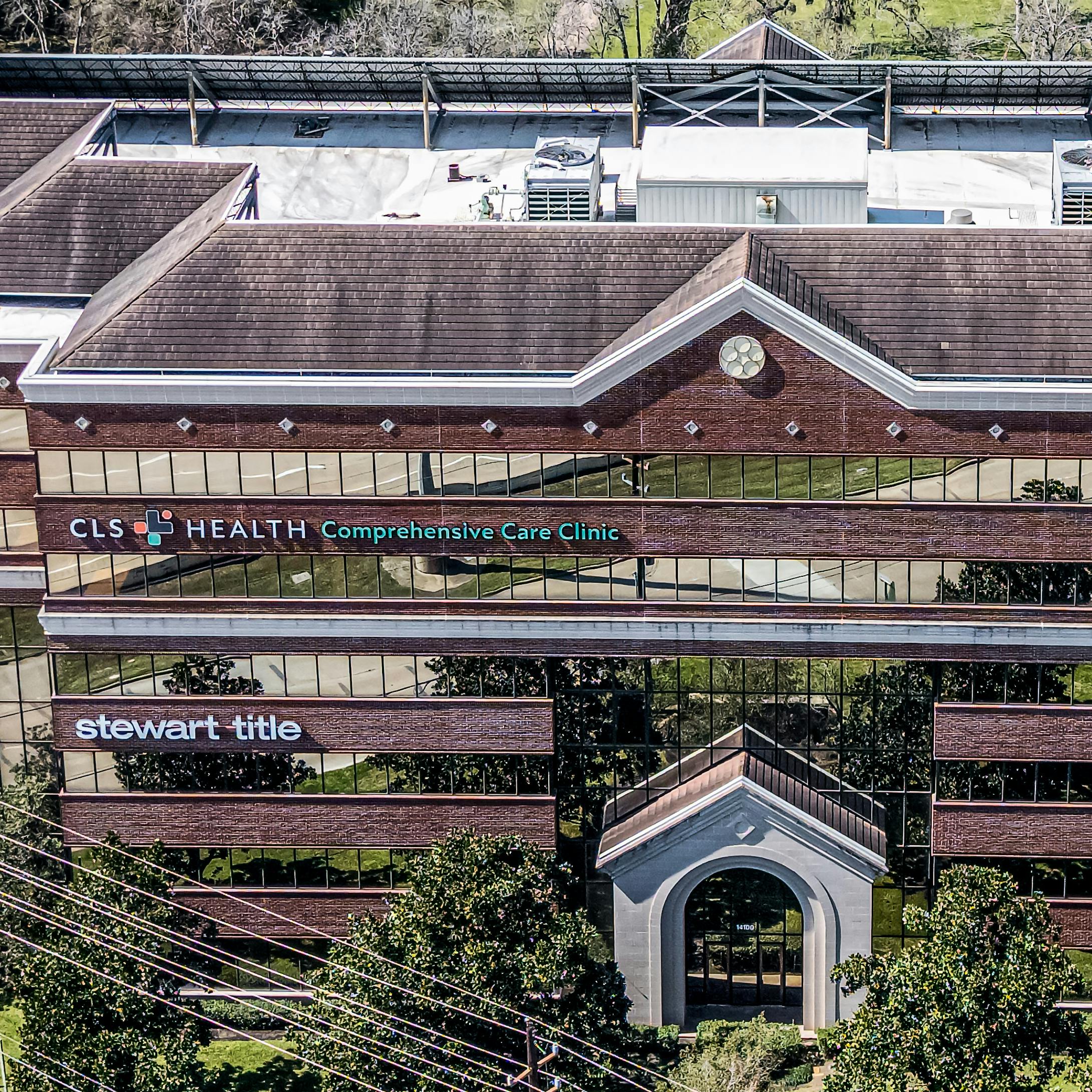Cardiology

Houston’s Trusted Heart Health Specialists
Cardiologists at CLS Health bring advanced expertise and a distinctly personal approach to every patient.
With clinics throughout Greater Houston, our heart specialists provide comprehensive cardiovascular care, from managing hypertension and coronary artery disease to treating arrhythmias and other complex conditions.
Recognized for their compassionate, thorough approach, our cardiologists consistently earn top patient satisfaction ratings. Whether you need a diagnosis, treatment, or long-term heart health management, we're here for your heart at every stage of care.
When should I see a heart doctor?
You should consult a cardiologist if you experience symptoms such as chest pain or discomfort, shortness of breath, irregular heartbeats (palpitations), unexplained fatigue, dizziness or lightheadedness, swelling in the legs or ankles, or persistent coughing. If you have risk factors like a family history of heart disease, high blood pressure, high cholesterol, diabetes, or a history of smoking, it's advisable to schedule a visit with a cardiologist for a comprehensive heart evaluation.
Providers

Cardiology

Cardiology, Interventional Cardiology

Cardiology, Interventional Cardiology

Cardiology, Interventional Cardiology

Candice Scalise-Turner
NP
Electrophysiology

Kirsten Carlson
NP
Cardiology

Electrophysiology

Electrophysiology

Cardiology, Interventional Cardiology

Briana Haney
NP
Cardiology

Cardiology, Interventional Cardiology

Cardiology

Cardiology, Interventional Cardiology

Giovanna Perez
NP
Cardiology

Cardiology, Interventional Cardiology

Cardiology, Interventional Cardiology
Conditions Treated
- Atrial Septal Defect (ASD)
- Mitral Valve Disease
- Aortic Stenosis
- Structural Heart Disease
- Bradycardia and Syncope
- Supraventricular Tachycardia (SVT)
- Atrial Fibrillation (AFib)
- Wolff-Parkinson-White Syndrome (WPW)
- Ventricular Tachycardia (VT)
- Heart Attacks (Myocardial Infarction) (acute)
- Pericardial Diseases
- Endocarditis
- Coronary Artery Disease (CAD)
- Ischemic Heart Disease
- Cardiomyopathies (including Cardiac Amyloidosis)
- Heart Failure (chronic and severe)
- Claudication and Critical Limb Ischemia (acute)
- Peripheral Vascular Disease
- Varicose Veins
- Disorders of Veins and Arteries
- Carotid Artery Stenosis
Diagnostics and Imaging
- Blood tests for lipid profiles
- Electrocardiogram (EKG)
- Echocardiogram (including Stress Echocardiography)
- Nuclear Stress Testing and Imaging
- Positron Emission Tomography (PET)
- Cardiovascular Magnetic Resonance Imaging (CMR)
- Cardiovascular CT (64-slice CT)
- Holter Monitors
- Event Monitors
- Optimization of Pacemakers and Defibrillators (ICD)
- Implantable Loop Recorder Monitoring
- Vascular Ultrasound
- Vascular Screening and Noninvasive Vascular Testing
Advanced Procedures
- Cardioversion for AFib and SVT
- Catheter Ablation for Arrhythmias
- Pacemaker Implantation
- Implantable Cardioverter Defibrillator (ICD) Placement
- Loop Recorder Insertion
- Cardiac Catheterization
- Angioplasty and Stenting
- Transcatheter Aortic Valve Replacement (TAVR)
- Vein Ablations for Varicose Veins
- Minimally Invasive Heart Valve Repair and Replacement (e.g., Mitral Valve Repair)
- Robotic-Assisted Cardiac Surgery
- Cardiac Rehab Programs for Heart Failure Management
- Advanced Heart Failure Therapies
- Left Ventricular Assist Devices (LVADs)
- Coronary Artery Bypass Grafting (CABG)
- Heart Transplant Surgery
Specialty Treatments
Focused care for heart conditions such as pregnancy-related heart issues and microvascular disease.
Diagnosis and treatment of venous insufficiency, varicose veins, and critical limb ischemia.
- Comprehensive cardiovascular risk assessment.
- Lifestyle counseling and management.
- Management of high cholesterol and hypertension.
Specialized care for cancer treatments that may affect heart health.
Don't see your insurance listed? We may still accept it! CLS Health updates accepted insurance plans regularly. Please call (281) 724-1860 to verify your coverage.
- Aetna Select
- Open Access Selects
- Elect Choice
- Aetna Open Access Elect Choice
- Aetna Choice POS II
- Managed Choice
- Open Choice PPO
- Aetna Medicare Advantage Plans
CLS Health does not accept:
- Aetna CVS Marketplace Plans
* Some providers may not accept this insurance, please call to confirm
- Superior Ambetter Core (Complete, Clear, Focused, Standard Silver and Gold)
- Superior Ambetter Value (Clear Value Silver, Focused Value Silver, CMS Standard Silver & Gold Value, Everyday Value Gold)
- Superior Ambetter Virtual (Ambetter Virtual Access Silver, CMS Standard Virtual Access Basic Silver, Ambetter Virtual Access Gold)
- Superior Health Plan CHIP*
- Superior Health Plan MAPD (Medicare Advantage Prescription Drug)
- Superior Health Plan Medicare
- Superior Health Plan MMP Medicaid*
- Superior Health Plan MMP Medicare
- Superior Health Plan STAR*
- Superior Health Plan STAR Kids*
- Superior Health Plan STAR+PLUS*
CLS Health participates in most Blue Cross Blue Shield plans including:
- Blue Choice PPO
- Blue Essentials
- Blue Essentials Access
- HealthSelect
- HealthSelect of Texas In Area
- Consumer Directed HealthSelect in Area
- HealthSelect of Texas Out of State
- Consumer Directed Health Select Out of State
- HealthSelect Secondary 65+
- Medicare Advantage HMO
- Medicare Advantage PPO
- Medicare Advantage Value HMO
- POS
- Traditional/Par Plan
- TRS-Active Care
- TRS-Care Standard
- BCBS MyBlue Health (Marketplace)
*Some providers may not accept Community Health Choice, please call to confirm
- MarketplacePremier
- Medicaid*CHIPCHIP PerinateSTAR
- Medicare AdvantageDual-Special Needs Plan (D-SNP)
CLS Health accepts most Cigna plans, including:
- Cigna HMO
- Cigna Local Plus
- Cigna Open Access Plus
- Cigna PPO
- ChoiceCare PPO
- EPO
- HMO
- HMO Premier
- Medicare Advantage Plans
- HumanaChoice - Medicare Advantage PPO plan
- Humana Gold Choice - Medicare Advantage Private Fee-for-Service (PFFS) plan
- Human Gold Plus - Medicare Advantage HMO & Special Needs Plan
- Military (TRICARE South Region Military Health Plan)
- POS - including Choice POS, National POS Open Access/Plus and Preferred POS Open Access.
- PPO
*Some providers may not accept United Healthcare, please call to confirm
- Commercial, HMO, POS, EPO and PPO Plans (Charter, Choice,Core, Doctors Plan, Freedon, Heritage, Navigate, Nexus ACO, Options PPO, Passport Connect, Select)
- Indemnity
- Medicare Advantage (AARP, Care Improvement Plus, C-SNP, D-SNP, I-SNP, Erickson Advantage, ERS Medicare Advantage, TRS-Care Medicare Advantage, UnitedHealthcare Chronic Complete, UnitedHealthcare Connected (Medicare-Medicaid Plan), UnitedHealthcare Dual Complete, UnitedHealthcare Group Medicare Advantage PPO, United Healthcare Medicare Complete)
- Community Plans* (CHIP, CHIP Perinate, Star, Star Kids, Star Plus, MMP)
- Wellmed (Wellmed Dual SNP Focus, Wellmed Medicare Advantage Focus)
*Some providers may not accept Wellpoint, please call to confirm
- Medicaid (All Texas Plans Including the Below)*
- CHIP
- CHIP Perinate
- STAR
- STAR+PLUS
- STAR Kids
- Medicare Advantage
- C-SNP
- D-SNP
- I-SNP
- Medicare Advantage HMO
- Medicare-Medicaid (MMP)
- Medicare-Medicaid Program (MMP)
- STAR+PLUS MMP
*Some providers may not accept insurance, please call to confirm
PPO Networks
- Beechstreet PPO
- Carnival Cruise Lines PPO
- Envolve Benefit Options Vision-PPO, HMO
- First Health
- Curative/First Health
- Galaxy Health Network
- HealthSmart Preferred Care
- Accel
- Healthsmart Payors Organization
- Multiplan PPO
- Tricare (Humana) PPO/Prime
Employer-Specific Plans
- Brazoria County Employees – Aetna TPA Brazoria County Employees
Workers’ Compensation Plans
- Workers’ Comp
- Auto & Workers’ Comp
Medicare and Medicare Advantage
- Medicare Traditional
- Medicare Advantage
- Memorial Hermann Health Solutions Commercial and Medicare
- Molina Medicare Complete Care HMO SNP
- Medicare-Medicaid Program (MMP)
- STAR+PLUS MMP
- Alignment Health Plan
- AllyAlign Health
- American Health Plans
- Florida Complete Care
- Gold Kidney Health Plan
- Imperial Health
- Independent Health
- Kaiser Foundation Health Plan of Washington
- Kaiser Foundation Health Plan of Colorado
- Mass Advantage
- Presbyterian Health Plan
- PriorityHealth
- Provider Partners
- SCAN
- UCare
- Vantage Health Plan
- Verda Healthcare
- Zing Health
Medicaid and CHIP Programs
- Molina Healthcare* (Marketplace, Medicaid, CHIP, CHIP Perinate, STAR, STAR Kids, STAR+PLUS)
- Texas Children's Health Plans*
- TMHP (Traditional Medicaid) Traditional Medicaid
Specialty Plans
- VA Community Cares Network CCN
FAQs
Maintaining heart health requires a well-rounded approach that includes regular exercise, a nutrient-rich diet, and weight management. Quitting smoking and moderating alcohol intake are essential, while stress reduction, quality sleep, and routine health screenings further support long-term cardiovascular wellness.
Eating clean for heart health involves prioritizing nutrient-rich foods. Focus on whole foods like fruits, vegetables, whole grains, lean proteins, and healthy fats. Limit processed foods, sugary drinks, and excessive sodium. Choose healthy fats like olive oil and avocados. Increase fiber intake from sources like legumes and oats. Stay hydrated with water. Control portion sizes to maintain a healthy weight. By adopting these dietary principles, you can significantly lower your risk of cardiovascular diseases.
Cholesterol significantly impacts heart health. High levels of LDL ("bad") cholesterol contribute to plaque buildup in arteries, increasing the risk of heart disease. HDL ("good") cholesterol helps remove LDL, reducing this risk. Elevated total cholesterol levels also increase cardiovascular risk. Maintaining a healthy cholesterol balance through a nutritious diet, regular exercise, and, if necessary, medication is crucial for preventing heart disease.
Coronary Artery Disease (CAD) risk factors include high blood pressure, high cholesterol, smoking, diabetes, obesity, and a sedentary lifestyle. Genetics and family history also play a role. Age and gender further influence risk, with men generally at higher risk earlier in life. Managing these risk factors through lifestyle changes and medical interventions can help prevent CAD.
Lowering high blood pressure naturally starts with healthy lifestyle habits. Eating a diet rich in fruits, vegetables, and whole grains while reducing sodium intake can help regulate blood pressure. Regular physical activity, maintaining a healthy weight, and limiting alcohol consumption also play key roles. Managing stress through meditation or yoga, quitting smoking, and routinely monitoring your blood pressure can further support long-term heart health and effective blood pressure control.
Atrial Fibrillation (AFib) is an irregular heart rhythm that increases stroke risk. Treatment options include medications to control heart rate and prevent blood clots, cardioversion to reset the heart's rhythm, and catheter ablation to destroy abnormal heart tissue. Lifestyle changes, such as stress management and maintaining a healthy weight are also important. In some cases, a pacemaker may be implanted. Early diagnosis and treatment of AFib can prevent complications.
Recognizing heart attack symptoms early is crucial. Common signs include chest pain or discomfort (pressure, squeezing, or fullness), shortness of breath, upper body pain (arms, back, neck, jaw, or stomach), nausea or vomiting, cold sweats, and dizziness. If you or someone else experiences these symptoms, seek immediate emergency medical attention.
CLS Health accepts Medicare, Medicaid, and most major health insurance plans. Schedule an appointment with our experienced cardiologists to receive comprehensive heart care covered by your insurance.
Recent advancements in heart disease treatment include minimally invasive procedures like TAVR, advanced imaging technologies for earlier diagnosis, wearable health devices for real-time monitoring, personalized medicine, regenerative therapies, robotic surgery, and expanded access through telemedicine.










